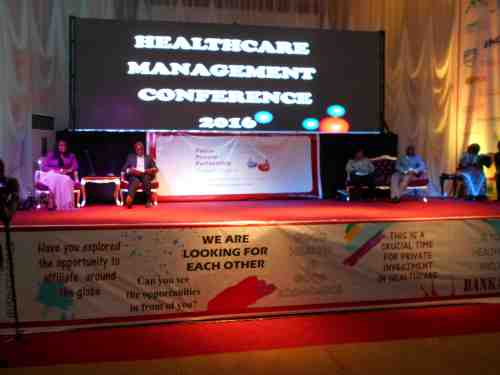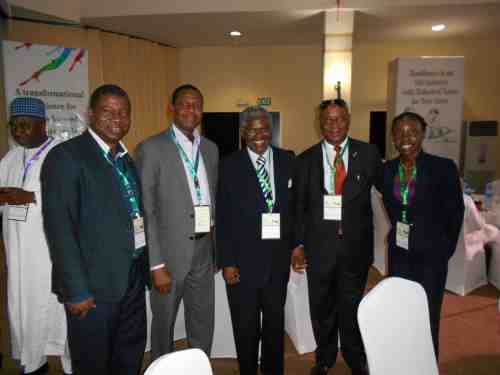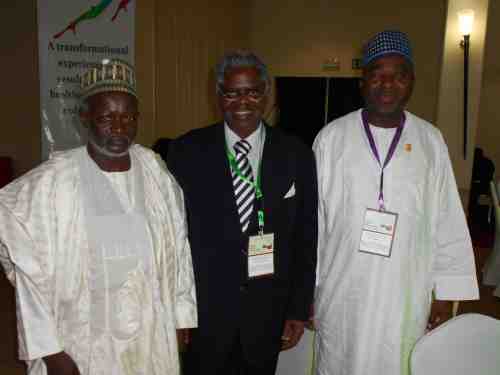



WINNING IN THE NEW REALITIES – VIEWS OF THE NIGERIAN MEDICAL ASSOCIATION ON PUBLIC PRIVATE PARTNERSHIP IN HEALTH AND COMBATING MEDICAL TOURISM.
PROTOCOL
The Nigerian Medical Association (NMA) over the years have continued to play her expected role as the custodians of the people’s health and have been involved in policy formulation, planning and executing at both the Federal, States, Local Government and the Community level.
The realities of this is all about change. We all sought for change as the only constant thing in life and this we believe can also take place in the health sector if the right thing is done.
To further understand the health sector public private partnerships, the NMA believe that this forum will further create a platform for improved access to broad range of private expertise and create a new quality and efficiency frontier on how medical tourism can be reduced to the bearest minimal.
SOME KEY QUESTIONS:
Why is the Nigerian health system in spite of the huge resources - human and material - that the nation could boast of still in a parlous state? Why is the nation plagued by a dearth of world class medical centers? How can the health sector be revamped and become attractive for big players in the private sector? What steps should be taken to halt the brain-drain in the health sector and attract Nigerian physicians in the Diaspora back home? Should public office holders be barred from seeking medical help abroad as a way of forcing them to address the problem in the health sector? Just to mention a few.
In Nigeria, concerns on the quality and financing of health-care delivery especially in the public sector have initiated reforms including support for public-private partnerships (PPP) at both the Federal and State Levels.
PPP refers to the establishment of on-going relationship between public and private actors; so far, evidence supports such interventions in all aspects of the economy and it has been shown to have a positive impact on health-care delivery in areas where it is practiced. Already the private sector plays a significant role in delivery of health services in Nigeria, serving both urban/rural as well as the rich and poor. Though there is no conclusive evidence that private sector offer significant price variation, they are preferred because of responsiveness to consumer preferences and accessibility. Interestingly, some PPP initiatives domiciled in public health institutions are already thriving at the Lagos State University Teaching Hospital and National Orthopedic Hospital, Igbobi, both in Lagos, Nigeria. Also this arrangement have received significant progress at the Garki Hospital, Abuja.
Experts and key stakeholders in health sector have observed that Nigeria could record phenomenal improvement in healthcare delivery and a corresponding rise in the country's economy if a suitable climate is created for private, public partnerships.
Although the stakeholders are of the view that the government has a critical role to play in creating a suitable template for such partnerships, they are not leaving it to them alone. Consequently, they have decided to ride on existing platforms as created by already existing policies that support such partnerships to advance moves in that direction.
For the purpose of public enlightenment, the PPP has the following aims:
- To leverage the government on the huge financial burden involved in running the health sector.
- To reduce the cost of healthcare delivery aimed at increasing quality of care without much financial pressure on patients. In other words, discouraging the out-of-pocket financing of health care services by Nigerians
- To ensure the five year balance between the time of investment by partners and time of business maturity is maintained if not shortened.
- To improve personnel development, professionalism through training and retraining of professionals to meet the demands of modern health care delivery.
- To enhance equipment and infrastructural base, innovation, character, staff and patient safety at workplace.
- To avoid excessive charges of services rendered in all departments of the hospital
The Stand of the NMA on PPP in Health and our commitment towards reversing medical tourism in Nigeria includes:
- To ensure effective management of the IGR and other finances of our health sector.
- To reduce financial recklessness as being experienced in some health facilities.
- To Promote professionalism and reduce quackery in the pursuit of effective healthcare delivery.
- To create a system that will easily evade the conventional regulations of some irregular statutory professional bodies that create bottlenecks in the running of health facilities.
- To create an environment where private clinical services in government owned hospitals and state hospitals become more effective and were the patients are not short changed.
- “The NMA is glad to know that what the Federal and State governments have been discussing and have previously approved is to bring in PPP in Health to some aspects of hospital operations in Nigeria: drugs and commodities services; radiology and laboratory services; catering services for staff and patients; sanitation and environmental services; security; and mortuary services.
It is worthy to note that “No government in the world has enough resources to deliver its health objectives to its citizens because as developments in research and technology makes health care more expensive, it has become the only reasonable option that governments should partner with the private sector to be able to fund the health needs of the population.
“The advanced and improved care that takes millions of Nigerians abroad on so-called Medical Tourism every year cannot be provided by the Federal government or State and Local Governments alone. PPP in Health brings in additional needed resources and practices that ensure that every Nigerian can receive quality health care at the time and place of need.
COMBATING MEDICAL TOURISM
Medical Facilities lacking in Nigeria that compel patients to travel abroad especially India should be provided in Nigeria. Most of those facilities are not out of reach of Nigerian government (Federal, State and Local government). Presently in Nigeria, there are only two functioning radiotherapy centre in the Country serving over 170million people.
Multinational companies in Nigeria like MTN, GLO, Dangote companies and Shell etc should not only sponsor sports but in addition look into the health sector and provide some of these facilities that are lacking which compel patients to travel oversea. For instance, any of these companies can build and donate a renal centre, radiotherapy centre or centre for minimal access surgery etc as part of their social- corporate responsibility.
NDDC as an organization should attempt at establishing these rare facilities in NDDC states, not only constructing roads, civic centres etc.
Political office holders should also commit part of the money they waste as security vote in providing these rare facilities in their various states.
Health Institutions in the country(Teaching hospitals, specialist hospitals and Federal Medical Centres) can partner with wealthy citizens of this country or companies to procure some of these facilities.
Medical education especially at post graduate level should be restructured to be more practically oriented to meet with present challenges. Exchange programmes abroad can be encouraged so as to avail our post graduate students opportunities of training with these modern facilities. And on return from these trips, efforts should be made to provide these equipment they have been trained with.
Political office holders should be stopped from using collective public fund to seek for medical treatment abroad if they must travel, they must use their personal fund.
It has to be stated emphatically that poor awareness of PPP in both the state and federal workforce in Nigeria have resulted in quagmire in the acceptance of this policies in several sectors despite the development of a PPP policy that have resulted in tremendous progress in some states.
A high proportion of public health-care workers did not express a desire for PPP implementation in the state due to fear of loss of jobs and increased cost of health-care, this notion can be changed.
PPP in health-care delivery in Nigeria has good prospects. The federal and state agencies of government should re-strategize on their current effort by engaging on extensive mass enlightenment and other measures to build the Private sectors confidence in government policies and also win the support of the public health workers.
Finally, corruption which is the root of all evil in Nigeria should be combated with all strength and vigor. All hands must be on deck to fight this monster that has been the bane of our failure as a nation. It is not a fight for the president alone.
Thank you.
Dr. Kayode OBEMBE
PRESIDENT, NIGERIA MEDICAL ASSOCIATION